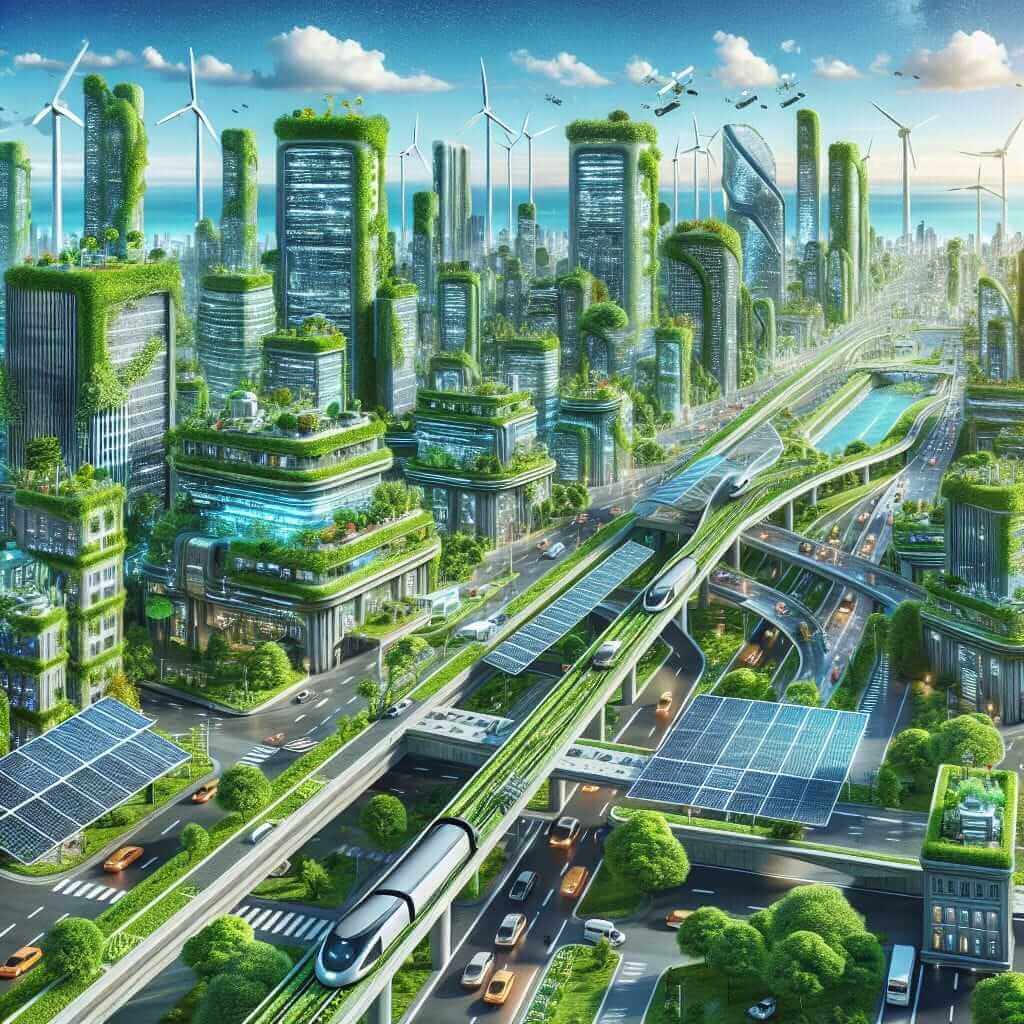The IELTS Reading test is known for its variety of topics and depth of questions. One frequently appearing topic is sustainable urbanization, which is highly relevant today given the global focus on sustainability and growing urban populations. Understanding the challenges of achieving sustainable urbanization not only prepares you for potential IELTS exam questions but also enriches your general knowledge about contemporary issues.
In this guide, we’ll explore a detailed reading practice designed to mirror the structure and difficulty of actual IELTS exams, focusing on the challenges of achieving sustainable urbanization. By dissecting this topic, we’ll also provide vocabulary, grammar tips, and strategies to help you excel in the Reading section of the IELTS exam.
Reading Practice
Passage: The Challenges of Achieving Sustainable Urbanization
Urbanization is an inevitable phenomenon as populations grow and migrate toward urban centers seeking better economic opportunities. However, sustainable urbanization—developing cities in a way that preserves the environment and ensures quality of life for future generations—presents significant challenges. Understanding these challenges is critical for formulating effective policies and interventions.
Firstly, rapid urban growth often outpaces the ability of cities to provide essential infrastructure and services. This strain on resources leads to inadequate housing, transportation, water, and waste management systems. For instance, informal settlements or slums proliferate due to the lack of affordable housing, leading to overcrowded and substandard living conditions.
Secondly, sustainable urbanization must address environmental sustainability. Urban areas are significant contributors to greenhouse gas emissions and environmental degradation. Implementing green technologies and sustainable practices within urban planning requires substantial investment and political will, which are often lacking.
Another critical challenge is ensuring social equity in rapidly urbanizing regions. Marginalized communities frequently suffer from inadequate infrastructure and services, exacerbating social inequalities. Policies must aim to ensure equal access to resources and opportunities for all urban residents.
Moreover, governance plays a pivotal role in achieving sustainable urbanization. Effective governance mechanisms that include stakeholder participation, transparency, and accountability are necessary. However, many urban areas suffer from poor governance and corruption, hindering sustainable development initiatives.
Finally, financial constraints are a significant hurdle. Many developing countries lack the financial resources needed to invest in sustainable infrastructure and technologies. International aid and private sector investment play critical roles but must be managed effectively to ensure they meet urban sustainability goals.
In conclusion, while sustainable urbanization presents numerous challenges, addressing them through comprehensive planning, investment in infrastructure, environmental policies, social equity measures, and effective governance is essential for the prosperity of future urban generations.
Shortcode for Image:

Questions
-
Multiple Choice:
- Which of the following is NOT mentioned as a challenge of sustainable urbanization?
A. Rapid urban growth
B. Environmental degradation
C. Decline in economic opportunities
D. Financial constraints
- Which of the following is NOT mentioned as a challenge of sustainable urbanization?
-
Identifying Information (True/False/Not Given):
- Urbanization is a phenomenon that can be entirely prevented by policies. (False)
- Informal settlements often arise due to a lack of affordable housing in urban areas. (True)
- Sustainable practices in urban planning require minimal investment. (False)
-
Matching Information:
- Match each challenge with its description.
a. Inadequate housing
b. Environmental sustainability
c. Financial constraints - Descriptions:
i. Lack of affordable housing leading to substandard living conditions.
ii. Absence of sufficient funding for sustainable technologies.
iii. Implementation of green technologies and practices.
- Match each challenge with its description.
Answer Keys and Explanations
-
Multiple Choice:
- Correct Answer: C. Decline in economic opportunities
- Explanation: Decline in economic opportunities is not mentioned in the passage.
-
Identifying Information:
- Urbanization is a phenomenon that can be entirely prevented by policies.
- Answer: False
- Explanation: The passage states urbanization is inevitable, not something that can be entirely prevented.
- Informal settlements often arise due to a lack of affordable housing in urban areas.
- Answer: True
- Explanation: The passage clearly mentions that informal settlements or slums proliferate due to a lack of affordable housing.
- Sustainable practices in urban planning require minimal investment.
- Answer: False
- Explanation: The passage states that implementing sustainable practices requires substantial investment.
- Urbanization is a phenomenon that can be entirely prevented by policies.
-
Matching Information:
- a-i: Inadequate housing – Lack of affordable housing leading to substandard living conditions.
- b-iii: Environmental sustainability – Implementation of green technologies and practices.
- c-ii: Financial constraints – Absence of sufficient funding for sustainable technologies.
Common Errors
Students often struggle with matching headings and identifying information, sometimes overestimating their understanding or misinterpreting the passage.
Vocabulary
- Urbanization (/ˌɜːrbənaɪˈzeɪʃn/): the process by which towns and cities are formed and become larger as more people begin living and working in central areas.
- Infrastructure (/ˈɪnfrəstrʌkʧər/): the basic physical and organizational structures and facilities needed for the operation of a society or enterprise.
Grammar Focus
- Subjunctive mood: It is essential that (subjunctive) governments address (base form) these challenges.
- Example: “It is essential that effective governance mechanisms include (base form) stakeholder participation.”
Tips for IELTS Reading Success
- Practice regularly with passages from various subjects.
- Improve your speed and accuracy by timing your practice sessions.
- Focus on understanding the main ideas and supporting details in each paragraph.
- Enhance your vocabulary by learning new words and their usage.
- Develop strategies for different question types, such as skimming for matching headings and scanning for true/false/not given questions.
By understanding the challenges of achieving sustainable urbanization and practicing with passages like this, you’ll be better prepared to tackle the Reading section of your IELTS exam. Good luck!